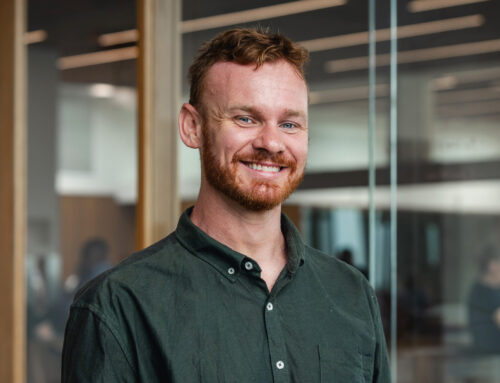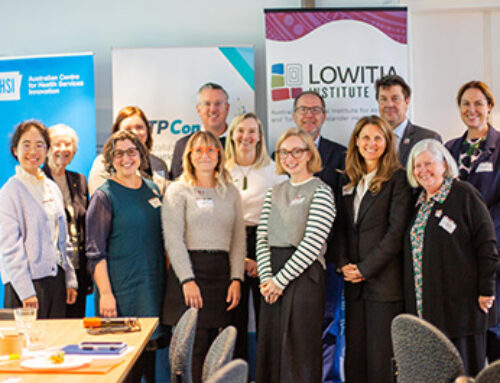My journey from dietitian into implementation science to improve chronic disease services
By Ashleigh Earnshaw, AusHSI PhD Scholar

I started my career as a community-based dietitian, fresh out of my Bachelor of Health Science (Nutrition and Dietetics) from QUT, eager to make a real impact. In those early days, I worked side-by-side with individuals, helping them prevent chronic diseases or manage existing ones. Through every conversation and consultation, I discovered something new: health isn’t just about the facts; it’s about understanding the person, their unique circumstances, and how behaviour ties directly to health outcomes. The challenge wasn’t just about delivering advice, it was about meeting people where they were and co-creating sustainable lifestyle changes to fit their lives.
But while I found working one-on-one with people incredibly rewarding, a curiosity began to stir within me. Could I do more? Could I leverage my skills to influence health on a broader scale? That question led me into the world of Primary Health Networks, where I delved into mental health reform projects. It was here that I found my next challenge – commissioning.
In health service commissioning, I wasn’t just helping individuals; I was helping to shape entire services and systems. The role required a deep understanding of local populations’ health needs, designing and implementing solutions, and constantly tweaking and monitoring their effectiveness. I built a new set of skills and found my passion, from conducting health needs assessments to developing partnerships, managing procurement, and evaluating performance. But it was during my time in this role that I had the realisation that I had been an accidental Implementation Practitioner all along.
As I transitioned into my Masters of Public Health research project with AusHSI, implementation science became my new fascination. It was like everything I had done in the past clicked into place. I began to realize that the heart of service success lies in how adaptable it is to local context. It wasn’t just about designing a good service – it was about crafting something that could thrive and adapt within its environment. The people it served, the professionals delivering it, the policies, and even the technologies supporting it – all of these factors needed to work together to create a service that would succeed.
This revelation, just how crucial context is to health outcomes, became a central tenant in my work. Without these considerations, services risked missing the mark. Adapting to the local context wasn’t just a good idea – it was essential for any health system hoping to succeed. From both an Implementation Practitioner and Implementation Scientist’s perspectives, identifying core components is key – these are the elements that need to stay true, no matter how much we adapt the service to fit its environment.
Today, working in the health system and as a PhD candidate at AusHSI, I’m at the intersection of two worlds: both the practical and the rigorous, theory-driven worlds of implementation science. My PhD research is focused on evaluating a groundbreaking new service that provides rapid-access, intensive outpatient care for people with chronic conditions. This research aims to get to the core of what makes the service work. What factors are essential for success and long-term sustainability? And how can we use theory-driven improvement to make it even better?







